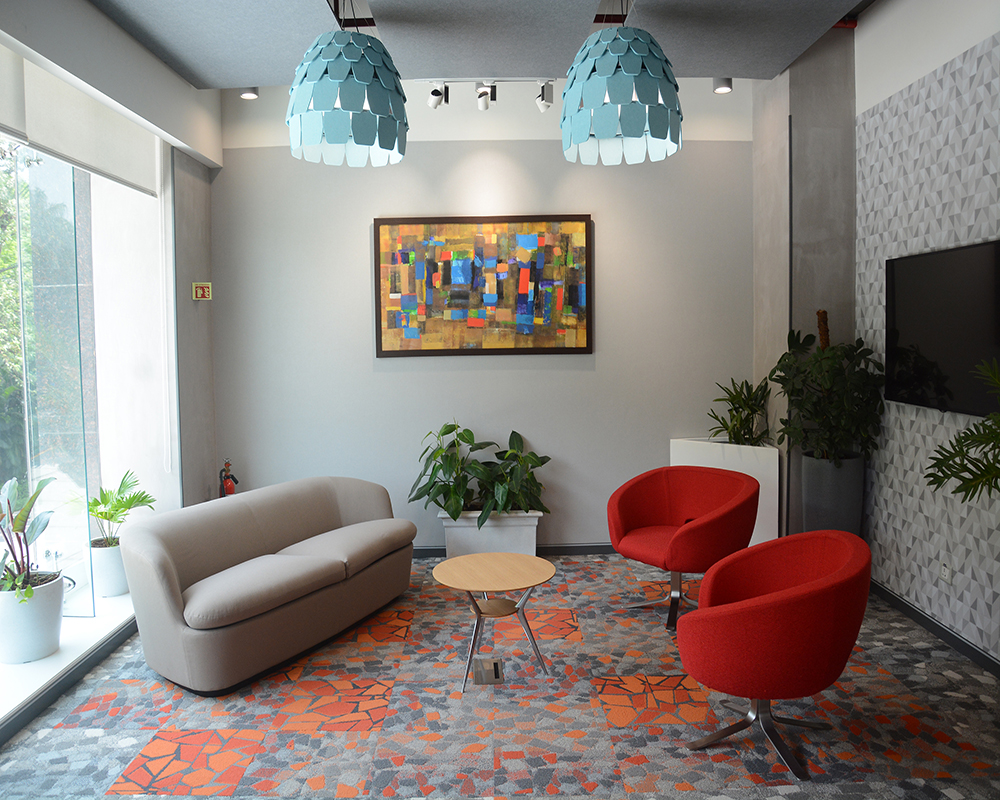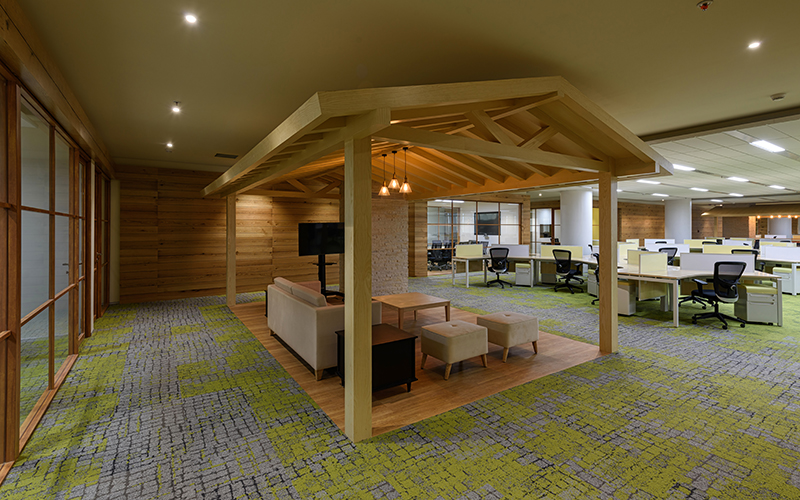Specifying more sustainable products in India
Architects, designers, and end users know the products they specify have a direct impact on our climate. Across India it is easy to identify and specify more sustainable products using the Green Product (GreenPro) Ecolabel. It enables end users in the building sector and manufacturing industries to choose right products, materials and technologies for reducing the environment impacts during the construction, operation and maintenance of their buildings and factories.
Recently, Interface, was awarded the GreenPro ecolabel for GlasBac® and CushionBacRE™ backed carpet tile.
GreenPro experts assess ‘how green a product is’ based on a holistic product life cycle framework and highlights the way forward to achieve excellence in environmental performance. With this certification, manufacturers can confidently position their products as ‘green’.
The judges classified the unique sustainability features of ecolabelled carpets to include:
• Minimal emissions (TVOC, formaldehyde, 4-PCH, etc.,) from carpets during its use
• Use of sustainable raw materials
• Restriction of hazardous substances in raw materials
• Adoption of resource efficient manufacturing process
• Utilization of onsite and offsite renewable energy
• Reduction in waste to landfill by recycling process
• Implementation of circular approach to take product back at the end of life
• Implementation of environmental impact reduction measures to reduce carbon footprint

Designed with the climate in mind, Informatica’s new office in Bagmane Tech Park, Bangalore (India) – featuring Interface’s Carbon Neutral Floors™. Carpet Tile Collection: Human Connections.

Inspired by Biophilic Design, Schlumberger India office in Pune (India) embraced Human Connections at their workspace. Carpet Tile Collection: Human Connections.
But that is not all, through our Carbon Neutral Floors™ program, the flooring products that we sell – carpet tiles, LVT and nora rubber sheets and tiles – are carbon neutral across their full product life cycle. This is at no extra cost, to the customer to help them meet their own sustainability goals while also allowing them to reduce the emissions impact of their projects or spaces.
In 2016, we launched Climate Take Back in 2016, our commitment to reverse global warming. Together we are working ardently to develop processes and products that create a positive impact on the world, and in 2018, set out to become a carbon negative company by 2040.
Our continued innovation shows you can create positive impacts when you design and make a product.
